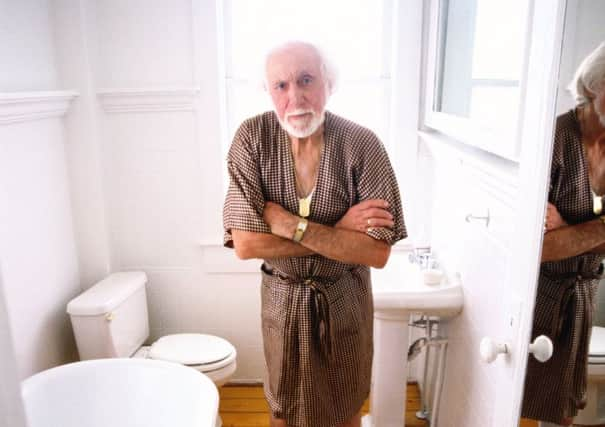Losing weight could be sign of malnutrition in older people


A survey for the Malnutrition Task Force found 36 per cent of over-60s think it is fine to lose weight with age, while 75 per cent have never worried about themselves or another older person unintentionally losing weight.
But the task force, which is made of experts from health, social care and local government, stressed that getting thinner is not a normal part of ageing and said losing weight can be an early warning sign of malnutrition or another serious condition, such as cancer, dementia or liver disease.
Advertisement
Hide AdAdvertisement
Hide AdSymptoms of malnutrition include tiredness, low energy, dizziness and getting repeated infections.
Lesley Carter, lead for the Malnutrition Task Force, said: “The reality is that poor nutrition and hydration are often not recognised by older people, families or healthcare professionals.
“The risk of becoming undernourished increases significantly as people age and it is further complicated by the incorrect assumption within society that losing weight is a normal part of the ageing process, when it fact should actually raise alarm bells.
“We all know that obesity causes serious health problems but there are also serious health consequences for older people who are at the other end of the scale and don’t eat enough.
“Many may ignore the warning signs, or simply not pay attention when they start to manifest. Rings may fall off, dentures could become loose, or clothes too baggy. Even the need to tighten your belt can be a clear indication that a person is not eating enough.
“Some people may start to find it hard to stand or carry objects, making preparing meals more difficult, or some may just show a general lack of appetite.”
One in ten people over 65 are thought to be malnourished or at risk of malnutrition. Older people who are most at risk often feel lonely or have had something happen, such as the death of a loved one, that can affect their appetite.
Malnourished people are also twice as likely as others to visit their GP, and end up in hospital more often.
Advertisement
Hide AdAdvertisement
Hide AdThe Malnutrition Task Force recommends that anyone who is struggling with their appetite eats smaller, more frequent meals.
They should also try milk puddings, milky drinks and cakes, and full-fat foods.